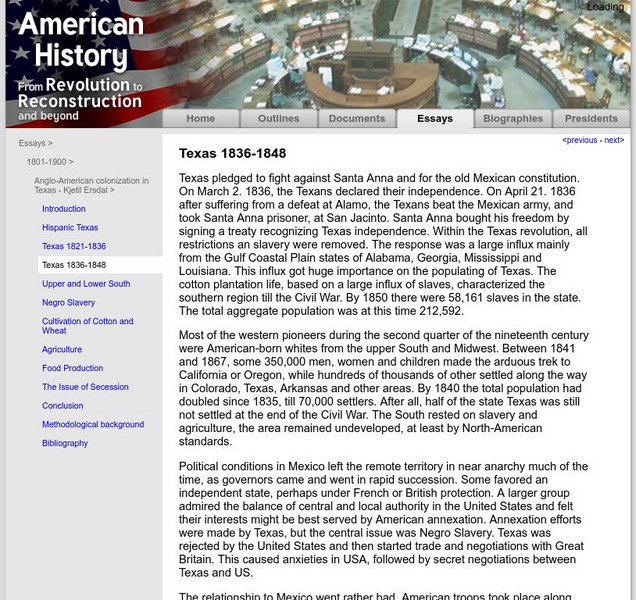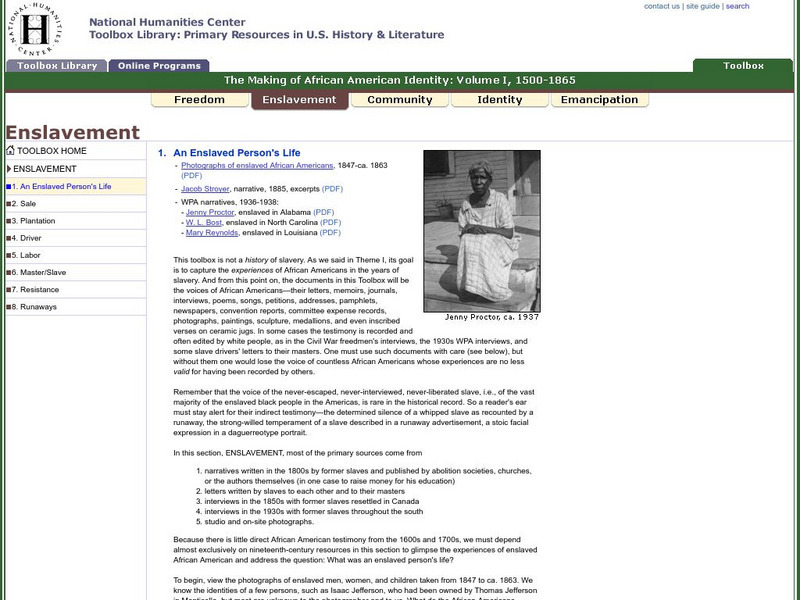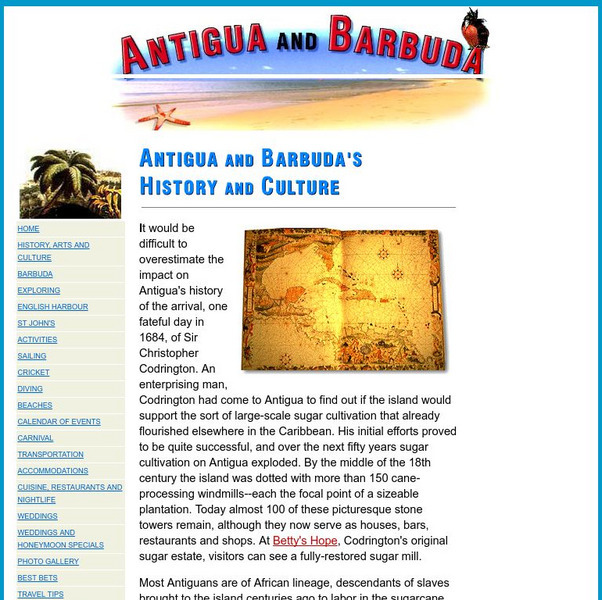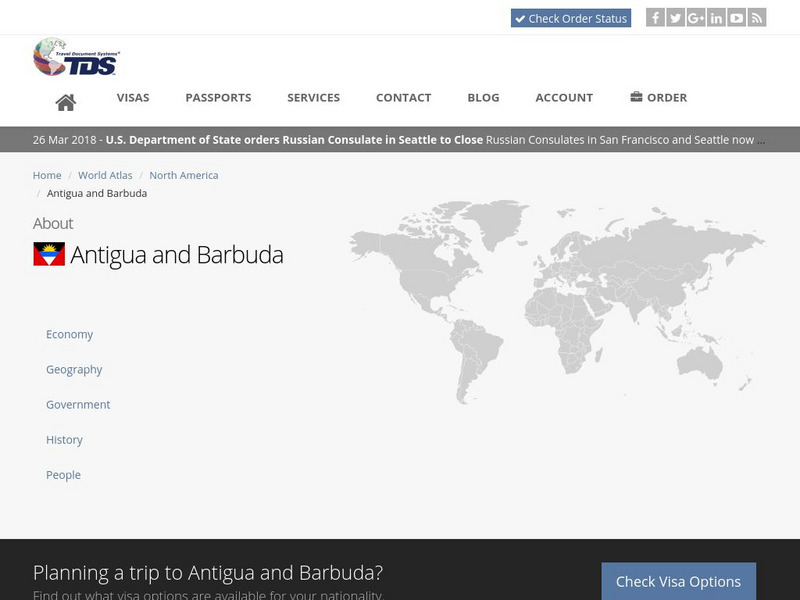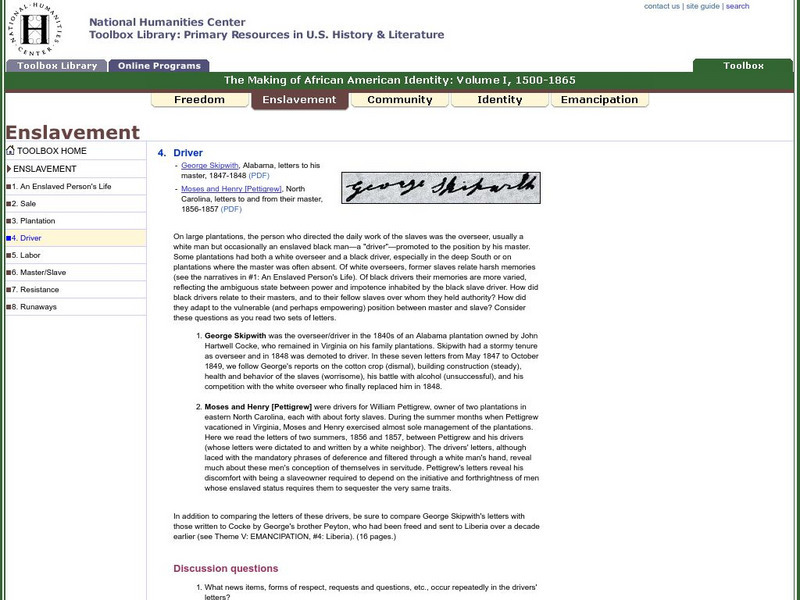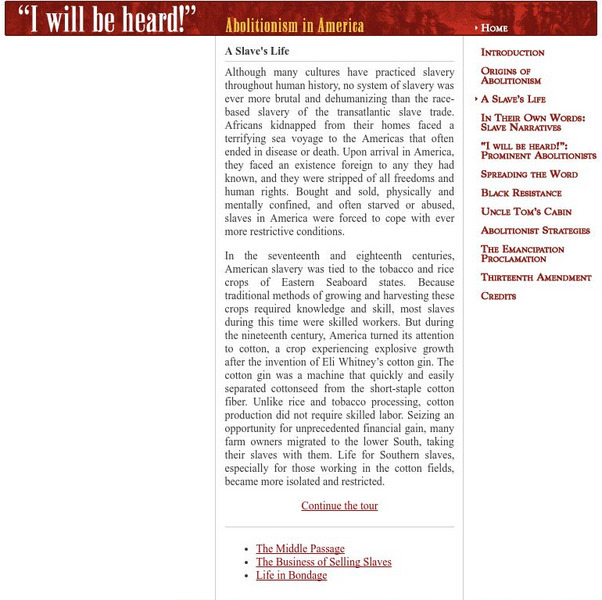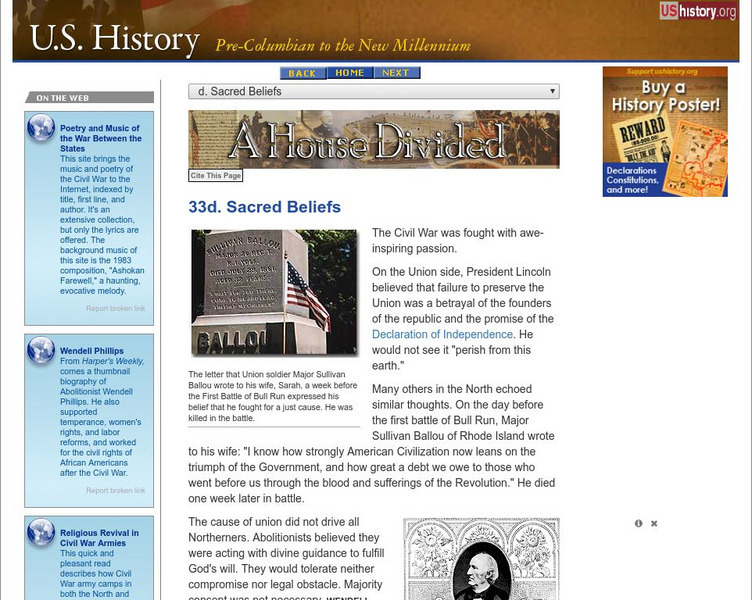Digital History
Digital History: What Was Life Like Under Slavery?
A sobering look at the life of the plantation slave in the decades before the Civil War. Read about the malnutrition, severe treatment, and inadequate living conditions.
Independence Hall Association
U.s. History: Cotton and African American Life
But for the invention of the cotton gin, slavery perhaps would have died out in the United States in the early 19th century. Read about why technological advances caused the spread of slavery in the South and read about how slaves clung...
National Humanities Center
National Humanities Center: Toolbox Library: Plantation Community, Making of African American Identity: V. 1
Various retrospective oral accounts from the early-twentieth century and two narratives from the mid-nineteenth century that examine the work, interrelationships, dangers, and lives of slaves on southern plantations.
Digital History
Digital History: The Origins of New World Slavery
Read about the initial slow introduction of slave labor into the colonies, which accelerated because of the slaves' knowledge of growing crops, and the decline in the institution of indentured servitude.
National Humanities Center
National Humanities Center: Teacher Serve: How Slavery Affected African American Families
University of North Carolina at Chapel Hill professor Heather Andrea Williams discusses the lives of enslaved African American families and how slavery made their lives different from other families.
PBS
Pbs: Cet: Africans in America: Arthur Middleton
This lesson plan describes the rice cultivation on Arthur Middleton's South Carolina plantation and the importance of slaves to this cultivation. It also offers a description of the Middleton Family. Click on Teacher's guide for teaching...
National Humanities Center
National Humanities Center: Teacher Serve: The Varieties of Slave Labor
Daniel C. Littlefield, Professor of History at University of South Carolina, explores how plantation or slave labor differed according to location and period.
University of North Carolina
Documenting the South: Jacob Stroyer, 1849 1908: My Life in the South
This site, from the University of North Carolina, provides the full text of "My Life in the South," the autobiography of an emancipated slave, Jacob Stroyer(1849-1908). The text is complete and in-depth with a full introduction and...
New York Times
New York Times: Insurance Policies on Slaves
[Free Registration/Login Required] Read this intriguing article about the newly unearthed insurance policies that were sold to plantation owners to insure their slaves. This is a superb example of how the U.S. viewed slaves as a...
Other
United States History: Ch. 3 Sec. 1: The Southern Colonies [Pdf]
A chapter from a history text that looks at the development of the Southern Colonies. It discusses the Southern agricultural economy that relied on slave labor, tobacco as a cash crop, Southern society, indentured servitude, Bacon's...
McGraw Hill
Mc Graw Hill: Colonial Economy and Patterns of Society
Although tied to pages from a specific text, these AP study questions allow anyone to consider aspects of colonial economics. (Answers to some of the questions are located at the following link:...
University of Groningen
American History: Essays: Anglo Amer. Colonization in Texas: Texas 1836 1848
A brief look at the declaration of independence from Mexico by Texas in 1836, the removal of restrictions on slavery, and how this dramatically increased the population and led to a much greater reliance on the cotton industry in the...
National Humanities Center
National Humanities Center: Toolbox Library: An Enslaved Person's Life, Making of African American Identity
Various photographs of slaves from the pre-Civil War era, an autobiographical narrative of slavery, and three accounts recorded in the 1930s of the lives and conditions of former slaves are included in this large set of information...
University of Groningen
American History: Essays: Anglo American Colonization in Texas: Negro Slavery
Describes the role slavery played in Texas in the mid-1800s, and the cotton plantations' role in the Texas economy.
British Library
British Library: Discovering Literature: The Rise of Consumerism
With the increasing variety in clothes, food, and household items, shopping became an important cultural activity in the 18th century. This article describes buying and selling during this period and explains the connection between many...
InterKnowledge Corp.
Geographia: Antigua and Barbuda's History and Culture
Read this interesting account of the history of Antigua and Barbuda detailing English development of sugar plantations and sugar mills, and the early emancipation of the slaves on the plantations.
Travel Document Systems
Tds: Antigua and Barbuda: History
A brief history of Antigua and Barbuda beginning with the earliest inhabitants, the Siboney, and continuing to the elections of 2004. Information is from the U.S. State Dept. Background Notes.
National Humanities Center
National Humanities Center: Toolbox Library: Driver, Making of African American Identity: V. 1
Unusual letters from black slave drivers, and in one case, letters in reply from the white slave owner, about crops, labor, and conditions on plantations in the mid-1850s.
National Humanities Center
National Humanities Center: Toolbox Library: Charles C. Jones, Triumph of Nationalism: America, 1815 1850
Plantation owner, Charles Colcock Jones, argues in two chapters from his book on promoting religious education for blacks that plantation owners have an obligation to offer religious instruction to slaves.
Cornell University
Cornell University: Library: I Will Be Heard: A Slave's Life
A brief look at how slavery in America was tied to the crops grown in the South. See how the need for skilled workers was decreased and the use of unskilled slaves increased with the introduction of the cotton gin.
University of North Carolina
Documenting the American South: Thirty Years a Slave
From the extensive site, "Documenting the American South," read Louis Hughes' "Thirty Years a Slave: From Bondage to Freedom: The Institution of Slavery as Seen on the Plantation and in the Home of the Planter," which was originally...
Independence Hall Association
U.s. History: Sacred Beliefs
At the beginning of the Civil War people in both the North and the South held firm beliefs about the reasons for the war. Some wanted to preserve the Union, others to end slavery. In the South the question was about states' rights and...
Constitutional Rights Foundation
Constitutional Rights Foundation: An Overview of the African American Experience
Lesson with article and questions for discussion on the experience of African-Americans beginning with the slave trade.
Digital History
Digital History: The Life Cycle of a Slave [Pdf]
Read excerpts from these slave and ex-slave narratives to find out what the life of a slave was like through all stages of life--childhood, marriage, and old age. See the heartbreak of mothers being separated from their children, and...

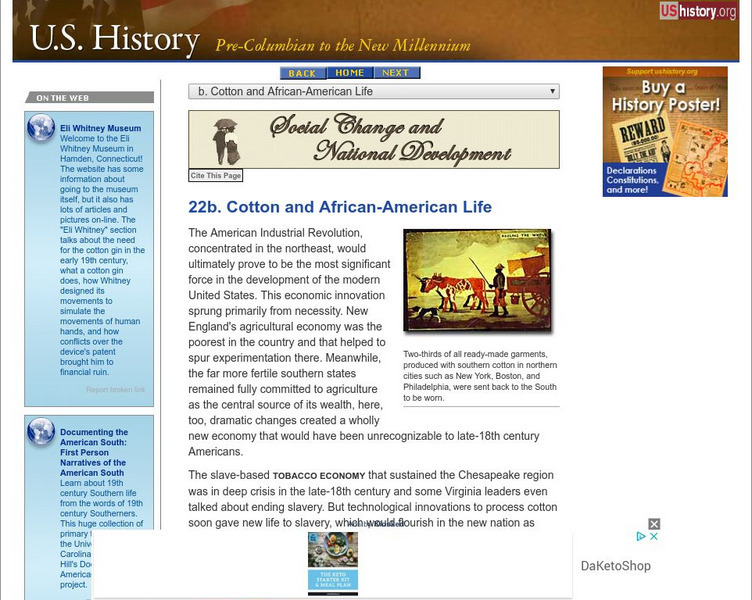
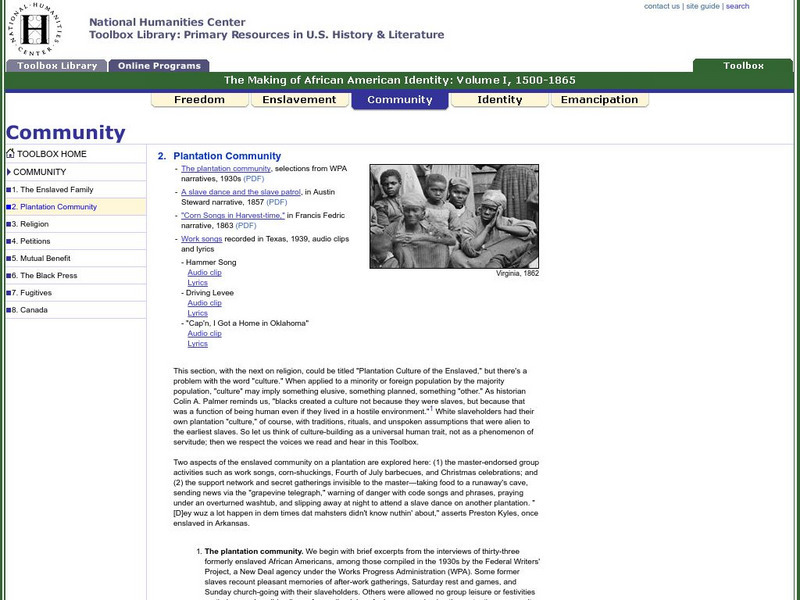
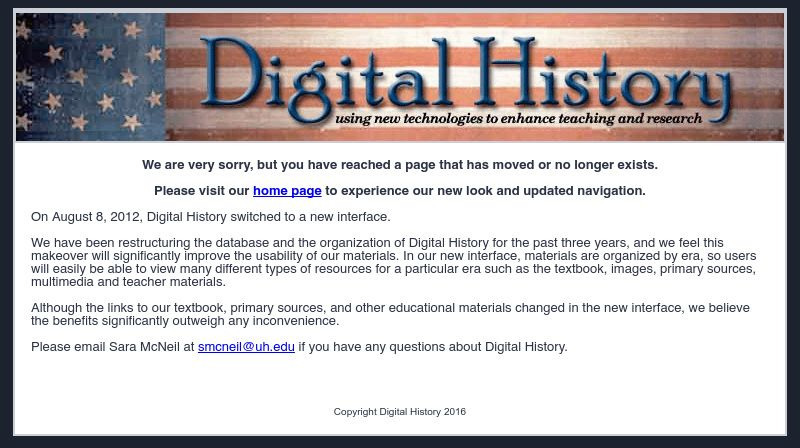
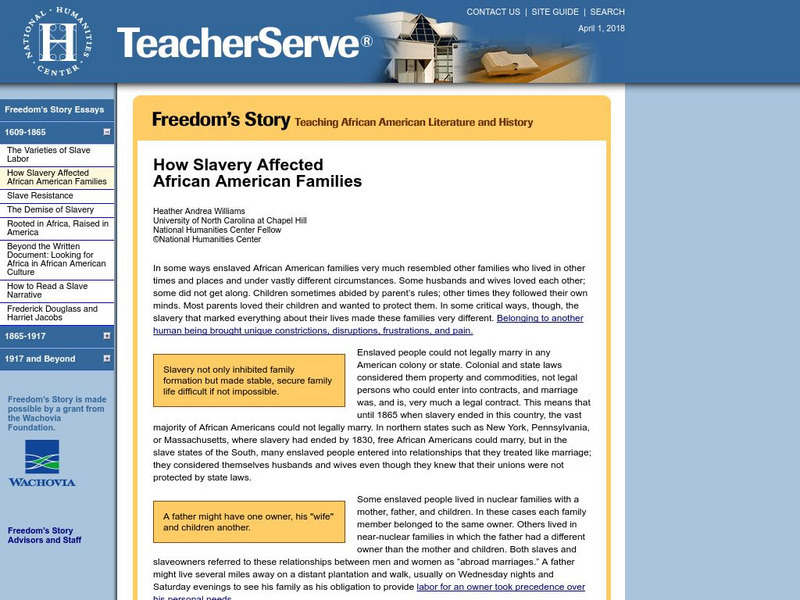


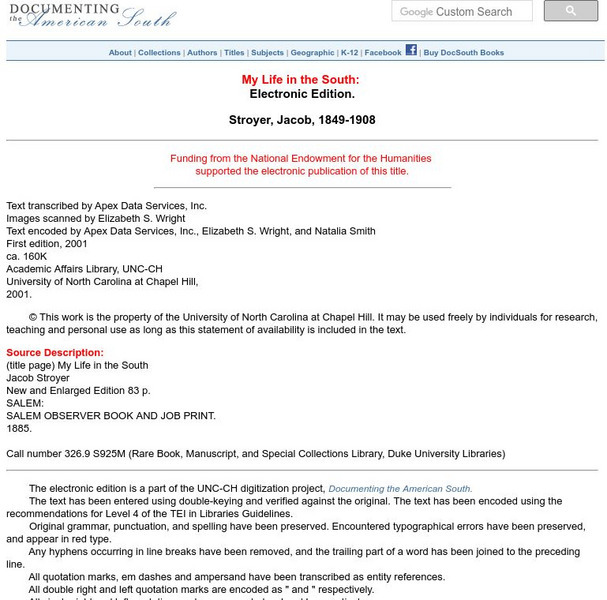
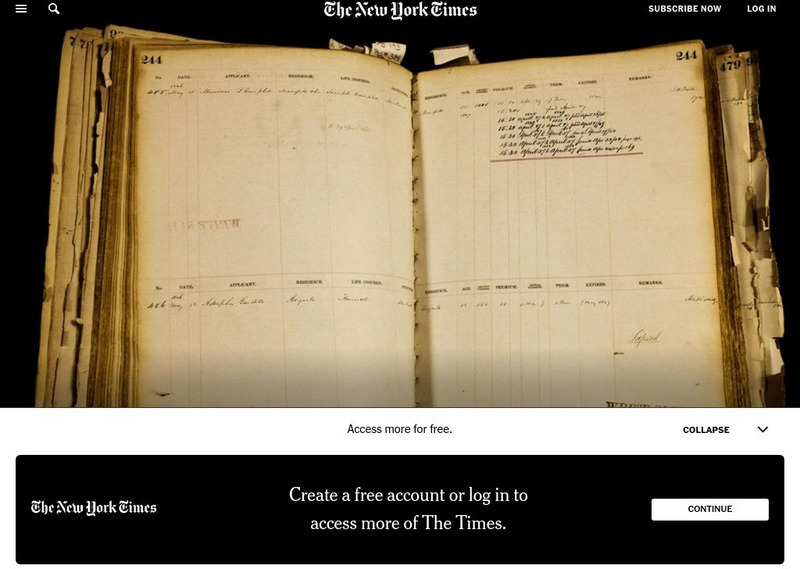
![United States History: Ch. 3 Sec. 1: The Southern Colonies [Pdf] eBook United States History: Ch. 3 Sec. 1: The Southern Colonies [Pdf] eBook](https://static.lp.lexp.cloud/images/attachment_defaults/resource/large/FPO-knovation.png)

